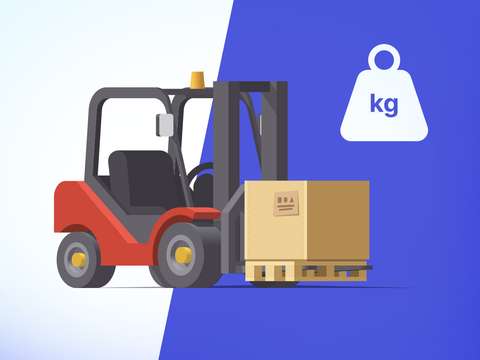In the eCommerce industry, one of the most significant challenges is optimizing logistics operations. As an organization grows, order flow can become unsustainable, necessitating the need for shipment automation. While 96% of leading organizations take advantage of technological innovations to automate their shipments, a recurring question arises: is it really worth investing in shipping automation?
Below, we'll take a closer look at the benefits of shipping automation and how it can drive business growth for the eCommerce industry.
What is shipping automation
Shipping automation is about simplifying the tasks required to process and ship orders using automation technology. The aim is to minimize human intervention as much as possible in order to make better use of available resources.

How shipping automation works in eCommerce
Shipping automation process in eCommerce involves implementing technologies to automate repetitive and manual tasks related to logistics management. The level of automation in eCommerce depends on how these solutions interact, optimizing communication and operational flow.
Let´s and example of ecommerce shipping automation workflow for eCommerce:
- Order reception: The system electronically receives orders, whether through the online shop, a marketplace, or any other sales channel.
- Validation and processing: Order information, such as shipping addresses, purchased products, and stock availability, undergoes verification. Shipping costs are then calculated, and the most suitable carrier is selected.
- Label generation: The system automatically generates shipping labels, containing necessary carrier information, including destination addresses, package weights, and dimensions.
- Communication with the carrier: Order information and labels are electronically sent to carriers, expediting the collection and shipping process.
- Tracking and notifications: The system enables real-time tracking of shipment statuses for both the company and the customer. Additionally, automatic notifications regarding shipment progress and delivery can be sent to customers.
- Returns management: Automation can also facilitate returns management, allowing requests to be processed quickly and efficiently.
Recommend to read
Learn how to professionally manage your eCommerce shipments.
7 benefits that make automated shipping worthwhile in 2024
1. Reduced delivery times
Speed of delivery has become a crucial factor in ensuring customer loyalty. In fact, nearly 50% of consumers worldwide want to receive their orders faster. By automating your shipping processes, you remove the barriers to speeding up your deliveries, both logistically and strategically. This leads to a significant improvement in your customers' shopping experience by offering faster and more efficient shipping.
2. Less working time
The manual shipping operation is time-consuming in several departments. For example, warehouse workers can travel up to 10 miles in a day picking items. However, an automated operation, using tools such as picking lists or digital scanners, will significantly reduce the time operators spend on these (and many other) tasks. This allows resources to be spent on strategic processes with a higher return on investment (ROI).
3. Lower operating costs and more savings
According to Statista, shipping accounts for almost 90% of total operating costs for eCommerce, highlighting the importance of automation in saving resources and money. Less costly in the long run than human labor, technology enables smaller teams to be used and minimizes errors from manual handling by more than 80%, which reduces costs for incidents and returns. In addition, shipment automation software facilitates the execution of price reduction strategies by scheduling pick-up with the most economical carrier for each order, gradually generating savings.
4. Sales, conversion and customer satisfaction
More than 90% want to track their shipments. Numerous logistics software solutions offer tailored automated communications for end customers, including shipment notifications. These features not only enhance the customer experience but also bolster the brand-customer relationship. Moreover, these automated shipping notifications provide comprehensive shipment status updates and may also incorporate supplementary promotions or discounts, thereby amplifying business prospects and fostering greater customer loyalty.
5. Internal data collection
Through the automation of the shipping system, real-time data is gathered at every stage of the logistics process. This encompasses details such as processing times, shipping routes, delivery schedules, and customer satisfaction, among other crucial aspects. By harnessing this internal data, companies can pinpoint areas for enhancement within their supply chain, optimize shipping routes to minimize costs and delivery times, and ultimately enhance the overall customer experience.
6. Scalability and flexibility
Managing a business manually limits its ability to grow, as it requires hiring more employees to increase production. Automated systems can easily adjust to handle peaks in demand without compromising service quality, allowing businesses to take advantage of growth opportunities without worrying about operational constraints. Additionally, the flexibility of these systems allows dispatching processes to adapt as the business evolves, ensuring that they can remain agile and competitive.
7. Focus on growth
According to McKinsey, automation has the potential to increase global productivity growth by 0.8 to 1.4% annually. By automating tasks that previously held back growth, you can redirect your time and resources towards higher-return processes, such as enhancing internal productivity or refining procurement and sales channels. It's evident that automation is closely tied to eCommerce growth. Without it, an online business would face significant challenges.
Challenges in automatic shipments
A) Shipping automation is costly
The implementation of shipment automation systems involves a significant initial investment. This includes the purchase of specialized software, hardware if necessary, as well as the costs of recruiting and training staff. However, the long-term benefits make the investment a very attractive option for many companies.
B) Automated shipments are complex
Understandably, the automation of shipping processes in eCommerce can be perceived as a complex challenge. It requires the integration of systems, configuration of workflows, and coordination between different departments within the organization.
Is automation shipping worth It for eCommerce?
Shipping automation for eCommerce is indispensable in a highly competitive environment. Every business is unique, and only you can assess whether the investment in shipping automation technology is worth it. However, beyond operational savings and increased productivity, shipping automation offers online businesses the opportunity to deliver exceptional service to their customers.
Why is this so crucial? Today, the shopping experience is the determining factor in customer loyalty. If you overlook the opportunity to captivate your customers with an efficient and engaging shipping process, you run the risk of losing them to competitors who guarantee higher quality service. Therefore, shipping automation is not just an option but a necessity to stay ahead in the eCommerce market and ensure customer loyalty.
When analyzing return on investment, it is important to consider not only direct cost savings but also intangible benefits such as improved customer experience and the ability to compete more effectively in a saturated market.




